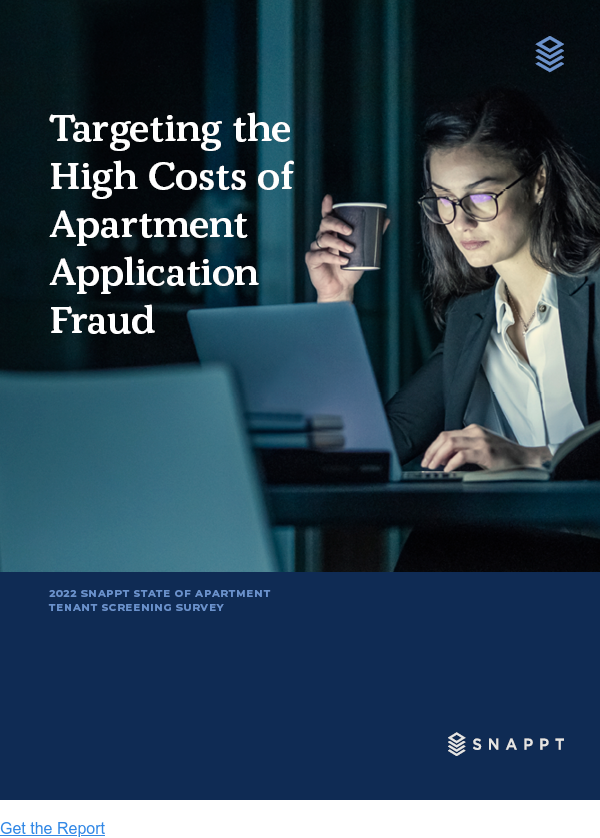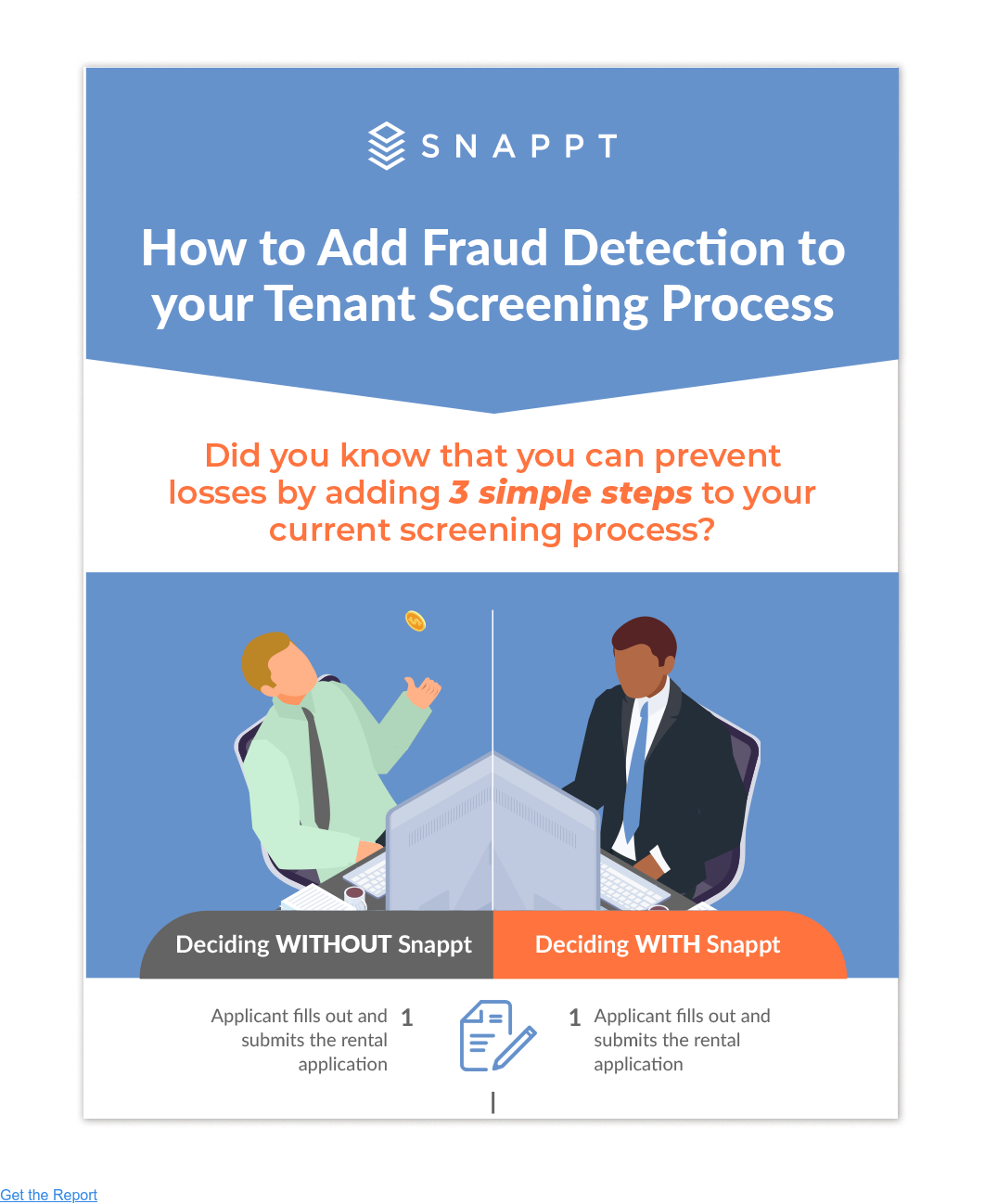Misrepresentation of information can lead to evictions. The typical property manager in a 2020 study by ReRez Research says at least 15% of evictions involve tenants who submitted fraudulent rental applications. Respondents also reported the average cost per eviction to top $7,685 per incident due to unpaid rent, legal fees, and other costs. A firm managing 3,000 units with a 20 percent eviction rate may endure 600 evictions every year, totaling more than $1.3 million per year in expenses related to fraudulent rental applications alone.
Unchecked tenant application fraud inevitably leads to evictions
Did you know that one in every three applications contains some form of fraud? The deceptions vary: some applicants inflate income; others hide it or disguise its source to cover criminal activity. With the prevalence of image manipulation technology combined with affordable advanced personal scanning equipment, it is easier than ever to alter a document and pass it off as legitimate. Combined with the COVID-19 pandemic's rise in unemployment rates, these factors have fueled the increase in fraudulent rental applications.
Preventing fraud requires vigilance, and flagging fraudsters before they move in may require transforming a landlord's approach to property management by incorporating more fraud prevention techniques.
How to identify rental application fraud
To avoid the eviction process, property managers must be even more diligent when vetting applications. Technology-enabled tenant screening software combined with good-old-fashioned manual reviews are the secret sauce to getting it right.
"If someone understands the law, they can stop paying and live rent-free for six months while we work to evict them," according to Chad Vasquez, general manager of Circa LA. "That's $150,000 for one of our penthouses."
Review documents for visual cues, checking for obvious inconsistencies such as misaligned numbers or degraded text quality. Check that transactional details and other figures on documents from financial institutions match formatting in verified documents received from the same source in the past. Also, make sure the numbers add up: for instance, see if claimed income totals the same amount printed on pay stubs or other financial documents. Spirited's proprietary software helps leasing managers reduce the risks of renting with fraud prevention tools that flag these alterations and inconsistencies for you, saving your company valuable staff-hours.
Many property managers also invest the time to verify income and references by calling numbers and clicking links listed in applications, or looking up the contacts themselves. To ensure the person you're speaking to is, in fact, the previous landlord or work supervisor, ask questions they can answer easily while a friend may be stumped, such as, "What was the start date for the applicant?" Remember that businesses have limitations on the information they can disclose about employees, so don't reach beyond your role. 'Yes' or 'No' questions may aid in this effort: "The applicant stated she earns $4,000 per month. Is this correct?"
Background checks can surface prior evictions but don't flag fraudulent intent
Thorough application vetting can save property management companies thousands in eviction processing costs. Credit checks will provide information on payment history, residence history, prior bankruptcies or evictions, and the tenant's credit score. Since a credit check is run directly by the screening personnel and sourced from a third party, it is harder for the applicant to forge. Unfortunately, even these are not failsafe as sophisticated fraudsters can use falsified and stolen identities to pass even these trusted resources.
Criminal history reports may search national, federal, state, and county databases to supply notice of convictions or any pending criminal cases. While most property managers traditionally gather the information, some states have passed or are considering 'fair chance' or 'clean slate' ordinances prohibiting criminal background checks. They do so based on the belief that criminal recidivism is driven, in part, by a lack of housing. Be sure to check the laws in your area; even if detailed background checks are prohibited, you may be able to check applicable sex offender registries.
If the tenant has been sued in the past or is currently involved in litigation, it will show up in public records. Take note of tenants who have been sued for unpaid rent, unpaid child support, or other serious financial matters. These may indicate a pattern of nonpayment.
Technology can help property managers identify fraud and ward off the eviction process
Evictions incur monetary losses and can be tough emotionally on property managers, apartment communities, and renters alike. To minimize evictions, property managers need better insight and information to help them identify renters who are the best match for their properties. Spirited is more effective at spotting fraudulent documentation than painstaking manual checks and is as quick and inexpensive as commercial screening solutions and is a critical first step in the modern tenant screening process. Try our ROI calculator to see just how much you could be saving annually.
In contrast to time- and energy-intensive manual inspections, many property owners, fight technology-assisted fraud with technology-enabled detection. Instead of spending four to 10 hours vetting an application, they spend minutes uploading digital documentation for image and historical analysis as well as a data-driven review using algorithms tuned to catch document manipulation. Within 24 hours, Spirited certifies whether the documentation is fraudulent or authentic.
Spirited's proprietary software is a critical first step in the modern tenant screening process and integrates seamlessly into your existing tenant screening process. Request a demo today to see how Spirited can work for you.
Enjoyed this post? For more information on ways property managers can avoid evictions, please download our new eBook, "21 Proven Strategies to Avoid Evictions."











